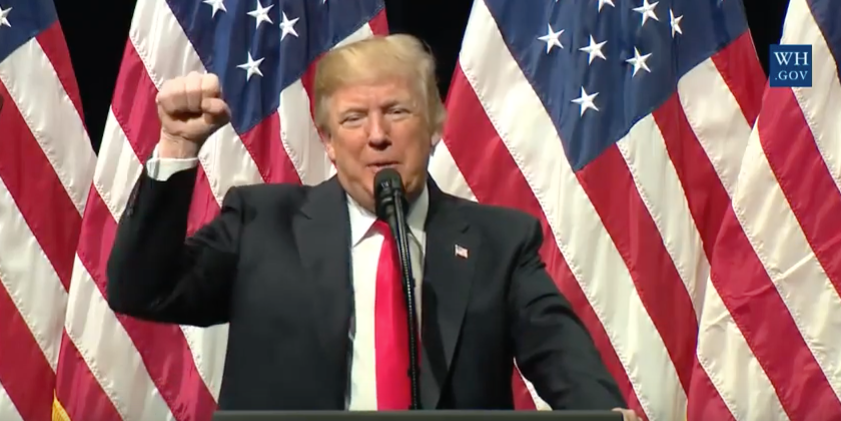- President Donald Trump mischaracterized a popular US immigration program on Friday, accusing countries of sending “their worst people” and putting them “in a bin.”
- Trump was referring to the diversity visa lottery, which allots roughly 50,000 visas to eligible applicants from around the world each year.
- A suspected terrorist accused of killing eight people in New York City last month entered the US through the program in 2010.
President Donald Trump assailed a popular US immigration program during his speech to the FBI academy on Friday, calling on Congress to eliminate the diversity visa lottery program that a suspected terrorist used to enter the United States years ago.
“They have a lottery. You pick people. You think the countries are giving us their best people?” Trump said, to laughter from the audience. “No. What kind of a system is that?”
“They give us their worst people, they put ‘em in a bin,” Trump continued, making a lifting gesture. “But in his hand when he’s picking these people, it’s really the worst of the worst. ‘Congratulations, you’re going to the United States.’ What a system.”
The program has faced increased scrutiny from lawmakers after a truck attack in New York City killed eight people in October. The suspected perpetrator, 29-year-old Sayfullo Saipov, was an Uzbeki national who entered the US in 2010 after winning the diversity visa lottery.
Trump's description of the lottery, however, omitted or mischaracterized several significant details about the nature of the program. For instance, countries do not send the US "their worst people" - foreign nationals apply for the visas at their own discretion and pay for their own $330 entry fees.
Furthermore, the program maintains strict eligibility requirements that bar those who lack certain education- or work-related qualifications. Applicants must have either a high school education or two years of qualifying work experience to be eligible to apply.
Beyond that, lottery winners undergo the standard interviews, security screening, and vetting applied to immigrants, and can be denied a visa if their backgrounds raise red flags to US immigration officials. In Saipov's case, for instance, authorities believe he was not radicalized at the time of his application - he became so years after entering the US.
The diversity visa program allots roughly 50,000 visas annually to immigrants from countries with "historically low rates of immigration to the United States," according to the State Department.
Millions of people across the world enter the lottery each year, and very few are selected. In 2015, the most recent year for which agency data is readily available, 50,000 visas were made available to more than 9 million qualified entries.
The diversity visa previously came under fire from certain Republican lawmakers earlier this year, when Sens. Tom Cotton and David Perdue reintroduced their RAISE Act, intended to slash legal immigration to the US by half over the next decade. But the act, which would eliminate the lottery, has little support from the majority of Republicans and Democrats in Congress.

